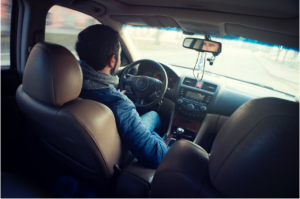Do Rideshare Services Deserve the Credit for Drops in Drunk Driving?
Category: Road
 With the introduction of ride-sharing businesses like Uber and Lyft, a reduction in drunk driving incidents has been promoted as a clear benefit. On the surface, the idea makes sense. Uber even partners with Mothers Against Drunk Driving (MADD) to raise awareness for the ride-sharing option.
With the introduction of ride-sharing businesses like Uber and Lyft, a reduction in drunk driving incidents has been promoted as a clear benefit. On the surface, the idea makes sense. Uber even partners with Mothers Against Drunk Driving (MADD) to raise awareness for the ride-sharing option.
In order to determine whether ride-sharing is having its expected effect, a group of researchers with the Penn Injury Science Center (PISC) at the University of Pennsylvania in Philadelphia conducted a study to review the situation. The results have been mixed, raising even more questions for exploration.
The study examined ride-share programs in cities where Uber initiated service, stopped or was suspended for a period of time, then resumed service. The question under review was whether the number of drunk driving crashes went down after the service resumed.
Four Cities Examined
The study reviewed crashes involving alcohol in Portland, OR, San Antonio, TX, and Reno and Las Vegas, NV. Data from Las Vegas was incomplete, so the analysis focused on the three remaining cities.
In Portland, Uber suspended its ride-sharing program for four months in 2015. When it resumed, alcohol-related crashes fell by 62%. In San Antonio, the crashes fell by 40% after a six-month pause. However, after a ten-month suspension of service in Reno, no change in the alcohol-related crash rate occurred.
Inconsistent Results Raise New Questions
Previous studies have also shown unclear results. Christopher Morrison, lead author of the PISC study, surmises that “the technology is likely to affect crashes, particularly alcohol-involved crashes, differently from city to city.”
The impact of an auto accident injury or drunk-driving death cannot be underestimated. Each year, approximately a third of deaths in motor vehicle accidents involve alcohol. Ride-sharing programs logically should be one solution to reducing these numbers. The mixed results of the PISC study suggests that more research is necessary to fully understand the situation.
Another study published in the American Journal of Epidemiology also showed no predictable correlation between ride-sharing services and drunk driving accidents. Noli Brazil, the author of the previous study, came to a similar conclusion, stating that “ridesharing may affect crashes differently in different places.”
New Avenues to Research
While researchers admit they have no definitive answers, the recent surveys have given insight to more questions. New studies will likely address more granular issues from city to city, such as the impact of public transportation availability, city size and distance traveled, or whether other transportation options are available.
Other areas of interest may include broadening the scope of the studies. The PISC, for instance, only focused on Uber as a starting point for their examination. Other ride-sharing programs, such as major competitor Lyft, also coexist in large cities and may have an effect on collected data.









Awesome content and very informative that everyone can refer through it. It’s a great help on reducing drunk driving case to reduce accidents.